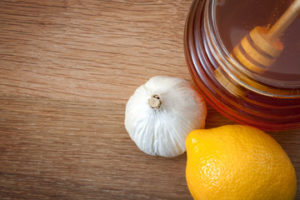It’s a wonderful spring afternoon, and you are out in the backyard preparing a scrumptious barbeque dinner. In a moment of distraction, your arm comes in contact with a hot barbecue grill. OUCH! The instant sensation is that of stinging. That sensation is your nerves sending signals to the brain, and when the brain receives that signal, it will respond by way of a natural mechanism of the body to prevent further damage. The brain will release chemicals that will cause you to feel pain. This pain will prompt you to protect that part of the body and facilitate the body to heal the damage or injury.
The severity and category of pain depend upon the origin of the pain. Also, the reaction towards pain varies from individual to individual. Some have a greater pain threshold, while others may feel severe pain from even a minor injury. There are three major categories of pain based upon the kind of damage.
• Nociceptive pain is a sensation of pain felt due to tissue damage. An example of this kind of pain is pain experienced after a surgery.
• Neuropathic pain is also known as nerve pain, and it occurs when nerves send signals to the brain that result in the release of certain chemicals that cause the feeling of pain. An example of neuropathic pain is skin burns. Neuropathic pain is also caused by nerve damage.
• Psychogenic pain is when the pain caused by tissue or nerve damage is prolonged or exacerbated due to psychological factors. Psychogenic pain can also be caused by some psychological conditions.
As mentioned above, how people react to pain varies from individual to individual. This means that for some, pain management strategies are essential while some others can bear the pain without any aid. Recent years have seen a great advance on how to deal with pain. Every household will have those painkillers that are available in any drugstore. The mode of action of these readily available painkillers involves selective inhibition of pain causing agents. Acetaminophen and ibuprofen are two of the most commonly used painkillers.
Adverse Effects of Regular Painkillers

Everyone desires relief from pain, but in some instances, the desire to get relief from pain makes people careless, and they end up popping in those painkillers way too often. Regular use of painkillers for even mild to moderate pain has been linked to a number of adverse effects. Some health issues that arise due to overuse of these pain-relieving drugs include heartburn, constipation, diarrhea, dizziness, abdominal pain, kidney damage, anemia, thrombocytopenia (decreased number of platelets).
8 Best Natural Remedies for Pain Relief

Before the advent and common use of synthetic painkillers, naturally available agents were used to manage pain. It may be a unique pain medicine for many, but natural agents have been in use since the beginning of times. They could be something as easily available as kitchen staples or in some instances they can be resourced from any good herbal store. Recently, people have been making a comeback towards the natural remedies for pain relief. The natural pain relief methods or natural painkillers do not have a fast mode of action, but they come without any major adverse effects. This is the main reason that people throughout the world are exploring natural painkillers.
Listed below are eight of the natural painkillers that are used for pain relief.
1. Ginger
Ginger is a known, powerful anti-inflammatory agent. It is used in a lot of home remedies due to its anti-inflammatory properties. It provides relief from pain by blocking the inflammatory compounds that are responsible for the sensation of pain. Multiple scientific studies have proven the efficacy of ginger as a natural painkiller. It can be used in raw form as grated ginger on your regular meal or can be added to smoothies. Certain cuisines have ginger as a must. Due to its great pain-relieving properties, ginger supplements have also become available in recent years.
2. Clove
Clove, like ginger, is another kitchen staple and has been known to provide relief from pain. One of the most popular home remedies for toothache is using cloves. A clove or two are just clamped between teeth for some time during the day to deal with toothache. The great effectiveness of cloves has been used in modern medicine by developing gels that contain the active component in cloves. These gels are applied to the sensitive tooth area before a painful dental procedure.
3. Turmeric

Turmeric is amongst the most effective natural painkillers. Its use and effectiveness in pain management has been widely documented and proven by multiple scientific studies. Turmeric is also being used in supplements. The active compound in turmeric, curcumin, is a highly effective anti-inflammatory agent and is being explored for its wide-ranging benefits. Turmeric can be added to food or smoothies. The bioavailability of curcumin in turmeric is enhanced by the addition of black pepper, and for this reason, turmeric is often used in conjunction with black pepper. The health benefits of turmeric are discussed further in this website.
4. Capsaicin
Capsaicin is a compound found in chilies and is known to provide relief from pain. Topical formulations that provide relief from pain contain capsaicin as an active component. “Topical capsaicin acts in the skin to attenuate cutaneous hypersensitivity and reduce pain by a process best described as ‘defunctionalization’ of nociceptor fibers.” Capsaicin as a pain-relieving agent is available in gels, creams, and patches.
5. Essential Oils
The wide-ranging benefits of essential oils are extensively documented. Folk remedies may have been using these compounds since centuries, but the ease of sourcing the active components of certain plants have made these natural remedies a lot more popular.
Furthermore, natural painkillers do not greatly disturb the natural mechanism of the human body. Essential oils are not to be ingested, but their topical application has been known to provide relief from pain. Essential oils must always be used with a carrier oil, such as olive or coconut oil, as they are quite potent even in a small volume. The reason is the high concentration of the active components in the oil. Lavender, rosemary, peppermint, and eucalyptus essential oils are some oils that are used for pain relief. FDA, however, has not regulated the essential oil use.
6. Devil’s Claw
Devil’s claw is a great anti-inflammatory agent, an anti-oxidant and analgesic. It is a plant that has its origin in Southern Africa and has been used for pain relief since a very long time. It mostly provides relief from joint pain, osteoarthritis, or any other musculoskeletal issue. Research has even found that devil’s claw is more effective than most of the NSAIDs that are regularly used for pain relief. It, however, should be avoided in case of ulcers.
7. White Willow Bark
Studies have shown that white willow bark is as effective as NSAIDs to provide relief from pain. It has been used as a painkiller long before drugs like ibuprofen became available. The compound salicin in white willow bark is responsible for providing pain relief. It is used to treat back pain, joint pain, etc. It should be used with caution as its side effects are much similar to those of aspirin (acetaminophen).
8. Bromelain
Bromelain is used to refer to a group of enzymes found in pineapple. It has been known to reduce the levels of pain-causing compounds, prostaglandins. Prostaglandins are inflammatory agents that cause pain. Bromelain supplements have been in use to treat inflammatory issues.
It is always best to opt for natural painkillers if the pain severity is mild to moderate. Natural painkillers have been in use since centuries, and recent studies have further proven their efficacy. Therefore, keep your kitchen stocked with all these great natural pain relief agents.








